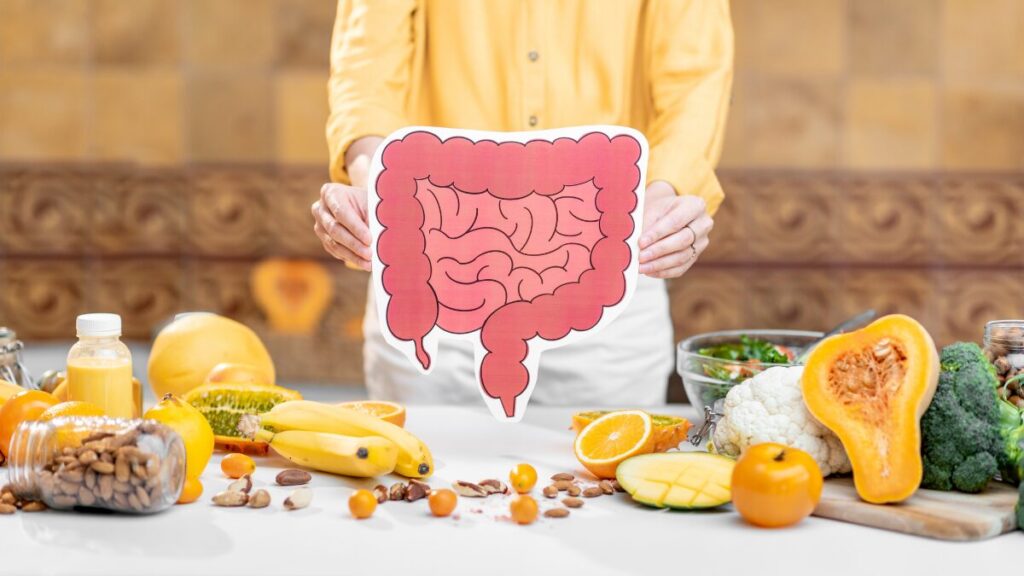
The phrase "trusting your gut" should not only be used when your instincts alert you to a suspicious situation, but you should also literally trust your gut to keep your body in tip-top shape!
In recent years, gut health has emerged as a critical factor in our overall wellness, influencing everything from digestion to mental health, and it is this growing awareness that underscores the complex interplay between our gut microbiota, the community of microorganisms residing in our digestive tract, and various aspects of our health.
Let us have a look at exactly why maintaining a healthy gut is essential and how it impacts our well-being.
The Microbial World Within
Our gut is home to trillions of bacteria, viruses, fungi, and other microbes collectively known as your gut microbiota. These microorganisms play a crucial role in digesting food, absorbing nutrients, and even synthesising essential vitamins.
However, their influence extends far beyond digestion, as a balanced gut microbiota supports a robust immune system, regulates metabolism, and maintains mental health.
Digestive Health And Beyond
A well-balanced gut microbiota ensures effective digestion and absorption of nutrients. Imbalances in this microbial community, known as dysbiosis, can lead to various gastrointestinal issues such as bloating, gas, diarrhoea, and constipation. Chronic conditions like irritable bowel syndrome (IBS) and inflammatory bowel disease (IBD) are also linked to dysbiosis.
A healthy gut can also reduce the risk of developing more serious conditions. For instance, the gut plays a significant role in breaking down dietary fibre, which is crucial for maintaining healthy bowel movements and preventing conditions like colorectal cancer.
The Gut-Brain Axis
One of the most fascinating discoveries in recent years is the connection between the gut and brain, often referred to as the gut-brain axis. This two-way communication highway means that what’s happening in your gut can affect your brain and vice versa. Research shows that having a healthy gut microbiota can boost mood, cognitive function, and overall mental health.
For instance, some gut bacteria make neurotransmitters like serotonin and dopamine, which are key for mood and emotional balance. If there’s an imbalance in these microbes, it’s been linked to issues like anxiety and depression. Conversely, stress and poor mental health can negatively impact gut health, creating a vicious cycle.
Immune System Support
The gut is integral to immune system function, housing around 70% of the body’s immune cells. My mind is blown, how incredible is that?
The gut-associated lymphoid tissue (GALT) is like your gut’s security system, spotting and dealing with any invading pathogens to keep your immune response in check. When your gut microbiota is balanced, it helps out by boosting the production of anti-inflammatory compounds and keeping nasty pathogens at bay.
Dysbiosis (remember, dysbiosis = an imbalance in your microbial community) can lead to increased intestinal permeability, commonly known as “leaky gut.” This means that harmful substances can slip through and enter the bloodstream, potentially sparking inflammatory responses or autoimmune conditions.
Metabolism And Weight Management
Your gut microbiota also plays a significant role in metabolism and weight management. Certain bacteria in the gut actually help break down complex carbohydrates and fats, influencing how calories are absorbed and used. An imbalance in these bacteria can contribute to metabolic disorders such as obesity and even type 2 diabetes!
Studies have shown that individuals with a diverse and balanced gut microbiota tend to have a healthier weight compared to those with a less diverse microbiota. Probiotics and prebiotics (found in fermented foods and dietary fibres, respectively) can help maintain this balance, supporting healthier metabolism and weight management.

Strategies For A Flourishing Healthy Gut
Keeping your gut in top shape involves making smart choices with both your diet and lifestyle. Here are some effective strategies:
- Eating A Diverse Range Of Foods: A varied diet ensures a broad spectrum of nutrients and promotes a diverse microbiota. By incorporating a range of fruits, vegetables, whole grains, and lean proteins into your diet, you are giving your microbiota a boost.
- Consuming Prebiotics And Probiotics: Prebiotics are dietary fibres that feed beneficial gut bacteria (yes, we have good bacteria in our gut too!), while probiotics are live microorganisms that can replenish the gut microbiota. Foods like yoghurt, kefir, sauerkraut, and bananas are excellent sources.
- Limiting Processed Foods And Sugars: Excessive consumption of processed foods and sugars can negatively impact gut health by promoting the growth of harmful bacteria.
- Staying Hydrated: Drinking plenty of water supports digestion and helps maintain the mucosal lining of the gut.
- Managing Stress: Since stress can affect gut health, incorporating stress-reducing activities such as exercise, meditation, or yoga can be beneficial.
- Getting Regular Exercise: Physical activity promotes a healthy gut microbiota and supports overall well-being.
The Bottom Line
Gut health is a key player in your overall well-being, impacting everything from digestion and immune function to mental health and metabolism.
By recognising the crucial role of your gut microbiota and using strategies to keep it balanced, you can seriously boost your quality of life. Prioritising a healthy diet, managing stress, and staying hydrated are just a few ways to support your gut and, in turn, your overall health.
Embracing these habits not only nurtures a healthier gut but also leads to a more vibrant and balanced life.

